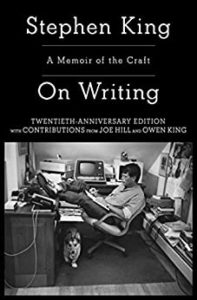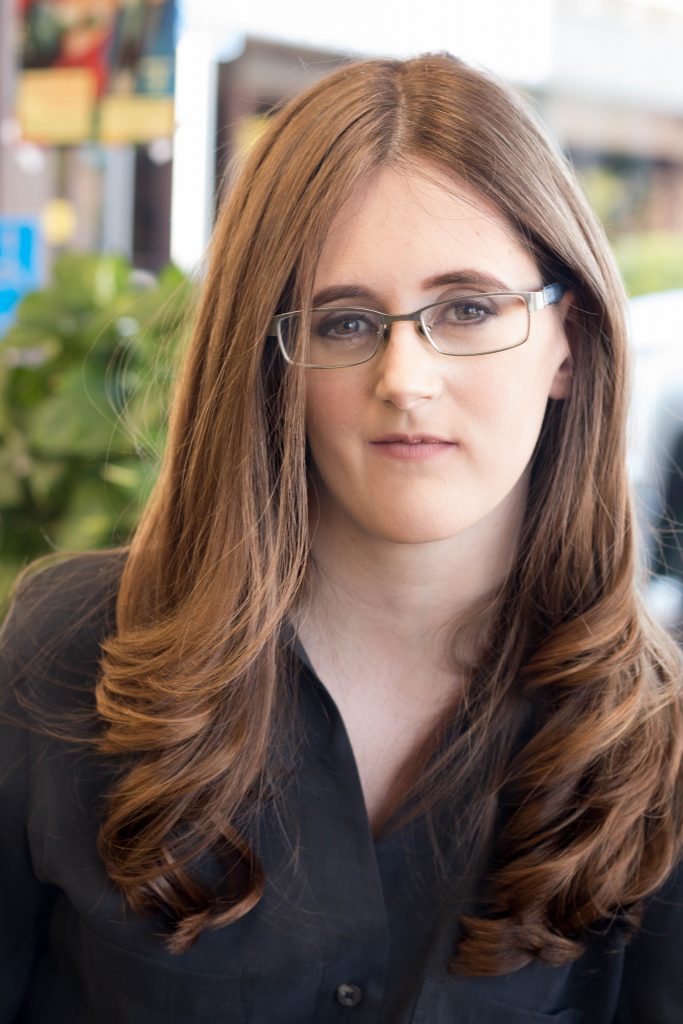By Marissa Dunham //

On Writing: A Memoir of the Craft by Stephen King
Why does On Writing: A Memoir of the Craft by Stephen King show up on so many recommended reading lists? By the end of this column, we’ll have an answer.
This column reviews books on the craft of writing. The intention is to recommend resources to aspiring and veteran writers that will benefit their writing journeys.
A go-to for many writers of all levels, King’s craft book reads more like a memoir than a guide. His practical lessons on grammar, suspense, and perseverance are the master class we’ve all been looking for. But, the book covers far more than good craft lessons. Dropping in on his memory of his first big paycheck from Carrie and all the juicy bits of his early career, his struggles and successes, King shows readers the heart of what goes into writing a book. And it isn’t a short walk out to the car.
The 291-page book is a resource I’m excited to share with you, and I think you’ll find it will be your next favorite craft book (if it isn’t already).
The book is divided into two sections: “C.V.” and “On Writing.”
C.V.
King’s curriculum vitae is the story of his writing life. And like C.S. Lewis before him, who said that the Narnia series isn’t an allegory, King tells us point-blank at the start that, “This is not an autobiography.” He’s writing a series of snapshots, a quasi-memoir of how he formed into a writer. And he’s right. This book is for the writer, not the biographer.
In these pages, you’ll learn how King formed his values as a writer through remembrances about his mother, the very first stories he ever wrote, meeting his wife at a university, and the odd jobs he’d take before his novels gained popularity.
These snapshots are great for all writers because they remind us that a strong writer can come from anywhere.
And you will find that after you’ve digested the writing lessons in the second half of the book, you’ll want to come back to reread the C.V. for its storytelling alone.
The man can write.
On Writing
Here the craft and grammar lessons begin. King explains how to use dialogue, description, and character development through anecdotes of how he wrote his best work and from examples of other published authors. It’s exciting to learn about craft elements and the analytical parts of a writer’s thought process with examples from popular books like Misery, The Stand, The Dead Zone, and Carrie, from the writer himself.
Knowing King’s success with these books makes his lessons feel all the more real and accessible.
In the middle of writing On Writing, King experienced what is now an infamous car accident. One reason I bring this up, out of the many wonderful parts of this book, is that the interruption shows what many writers struggle to answer: how do I maintain a writing practice when life keeps throwing mayhem and distractions into my routine?
King stops On Writing to give writers all the details of his accident and recovery, just like how his writing and life was interrupted by this accident. The event is a harrowing tale and gives an excellent example of why it is important to keep writing even when you feel like you can’t.
I won’t tell you anything else about why the car accident is interesting for a writer. The rest? You’ll have to find out for yourself.
By far, the most valuable resource comes at the end of the book, when King gives us two drafts of a chapter from 1408, a novel about a hotel room gone wrong.
Most side-by-side chapter comparisons only appear in technical writing manuals like The Copyeditor’s Handbook. King doesn’t shy away from this vital part of publishing. Instead, he gives full explanations for why he ultimately made the choices he did, and seeing how he handles revisions is an invaluable resource for all writers.
To answer the question at the beginning of this column, the book is so often recommended because King tells the whole story—from childhood to the ideal reader—and solves the mystery of why we love writing. The labor in what we do is rewarding. It’s not the only reward. But it’s a pretty good place to be.
What’s your favorite writing advice?
*Rated PG-13 for strong language

MARISSA DUNHAM is a writer and freelance editor. She spent the early part of her career in educational publishing, but now spends most of her time editing literary fiction, magical realism, and middle grade fiction. She lives in Southern California, where she enjoys bringing new life into the world by planting tomatoes and flowers in the garden.

